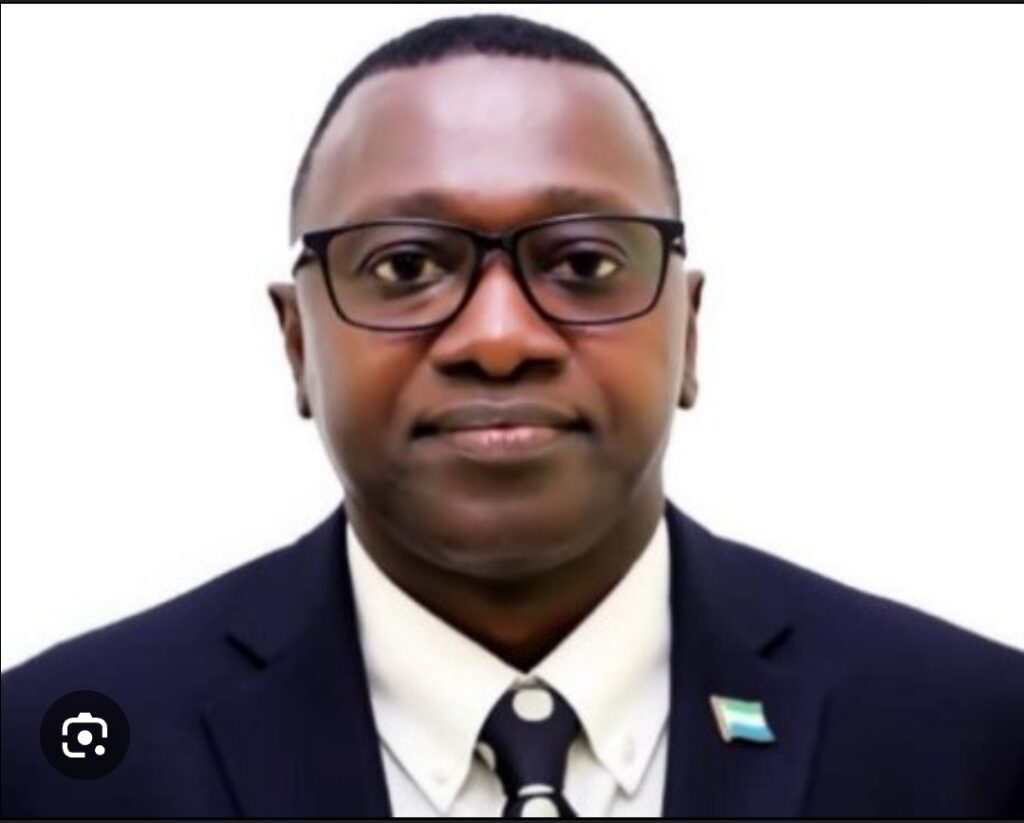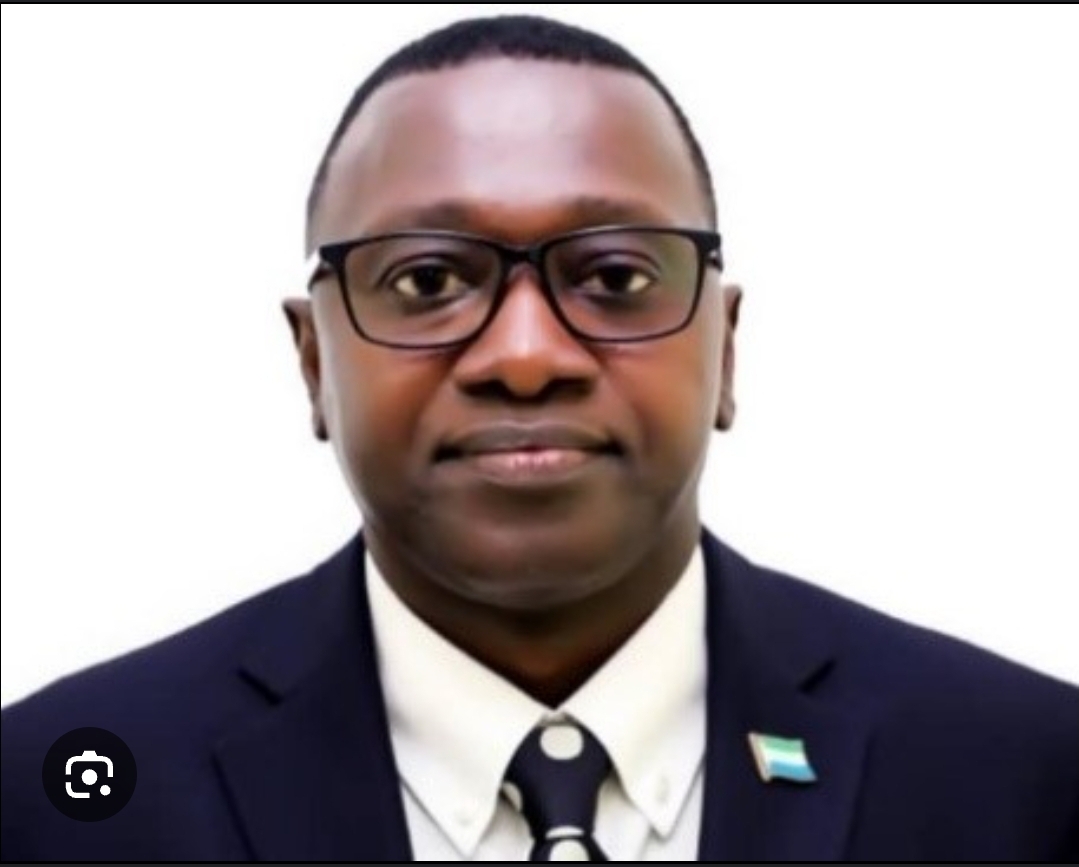
LOOTOCRACY!
…IMF EXPOSES ROT AT FINANCE MINISTRY
By Ibrahim Alusine Kamara (Kamalo)
Corruption and money laundering are key practices among other governance weaknesses reported by the International Monetary Fund (IMF) Governance and Corruption Diagnostic (GCD) mission that was in Sierra Leone from 10 to 21 February, 2025.
The mission’s report highlights severe structural weaknesses in key state functions, including a litany of corruption accelerators. These are held to be persistently hindering Sierra Leone’s sustainable economic development. Core of the broader governance challenges observed include, limited independence of key state institutions, and significant gaps in the legal and regulatory frameworks for managing and overseeing public resources. These challenges are causing official malpractices to flourish and undermine the effective running of the state.
The report further points to the lack of a clear rules-based system for ensuring accountability and integrity. This lack not only contribute to the display of impunity for official misconduct, but erodes trust and raises concerns about limited access to fair and efficient dispute resolution mechanisms.
The independence of oversight institutions is also limited, and this has critically undermined the effectiveness of the legal and institutional frameworks related to Anti-Corruption and Anti-Money Laundering (AML).
The legacy of impunity, weak accountability frameworks and sustained challenges in the effective enforcement of anti-corruption laws have worsened corruption vulnerabilities. And, the lack of a risk-based approach to the supervision of AML is a deep governance weakness that has significantly elevated corruption risks, including for Designated Non-Financial Businesses and Professions (DNFBPs)— identified as being exposed to high-risks of laundering of criminal proceeds, including corruption.
Politically exposed persons (PEPs) are not adequately monitored, application of sanctions not effective, suspicious transaction reports are minimal, and in some respects, totally lacking, and resources to investigate and prosecute money laundering are limited, all causing a significant increase in corruption risks, which are significantly heightened by fiscal governance weaknesses.
In the mining and minerals sector, governance is being sabotaged by discretionary incentives and shady contracts. Discretionary negotiations of fiscal incentives, or tax concessions, for investors, and other sectors have led to severe challenges in Sierra Leone’s revenue administration. This significantly hinders revenue performance and leads to an elevated reliance on fees and trade taxes. Furthermore, the existing mineral licensing and contracting practices create corruption vulnerabilities and lead to unfair revenue-sharing deals, allowing manipulation of contract terms that benefit private interests at the expense of the state.
Many SOEs operate at a loss, and this strains public finances and limits government spending on essential services. Losses are primarily driven by quasi-fiscal activities delivered by SOEs, that are not sufficiently compensated by the budget. The high dependency on Government support is unsustainable, and underperforming SOEs impose significant fiscal pressures on the public finance, diverting funds from essential public services and much needed infrastructure investment. Insufficient performance assessment frameworks, lack of transparency, weak, dispersed oversight, and political interference have plagued SOEs, creating corruption vulnerabilities and inefficiencies. Appointments to the SOE Board are based on political preference rather than merit, and this weakens the entire fundamentals of SOE corporate governance.
The mission observed that weak cash management and ad-hoc payment decisions by the Ministry of Finance heighten corruption risks in arrears clearance. There is no clear prioritization of payments, when many payments are “ad-hoc”, with decisions apparently made daily by the leadership of the Ministry of Finance (MoF). This creates room for corruption in determining which suppliers and creditors get paid first.
The mission noted corruption risks concerning the possible misallocation and diversion of funds at MoF. Payments meant for clearing arrears may be redirected subject to politically motivated pressures; over-invoicing and embedded penalties inflate the amounts owed, allowing room for discretion, and creating corruption risk.
At MoF, fragmented project selection and politicized budgeting undermine public investment governance, and the lack of a unified project pipeline creates governance vulnerabilities, as there is no comprehensive database that consolidates key information on public investments to aid decision-making on prioritization and selection of projects, according to the GCD mission’s report. Also, there is no pipeline of appraised and prioritized projects, and criteria to inform decision-making is lacking too.
The mission also noted that current processes allow the circumvention of selection and appraisal requirements for some projects. And, budgetary decisions appear to be politically influenced, especially in the roads sector— diverting funds from other critical projects— hindering balanced development.
Of the governance weaknesses observed by GCD mission, the most significant are the limited functional and financial autonomy of key oversight institutions, questionable practices in the appointment of state officials, the limited effectiveness of the access to information framework, and poor transparency and accountability in key state institutions.
These frameworks need to be improved if specific governance weaknesses and corruption vulnerabilities are to be addressed. Strengthening governance and tackling corruption must be prioritised to allow Sierra Leone to achieve her development objectives. Fighting corruption, as the authorities would always reaffirm, is “an existential threat,” and it must be confronted and defeated.
